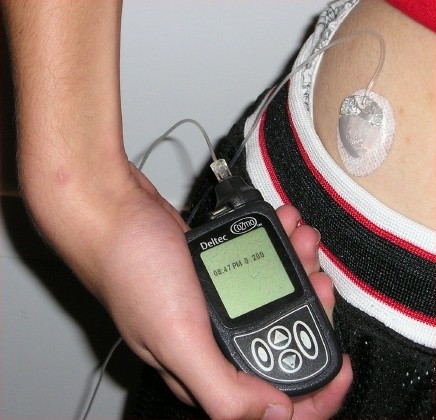By Krisana Estaura, | March 21, 2017

Researchers have investigated the link between rising temperatures and incidence of type 2 diabetes in the U.S. (Mbbradford)
A recent study has shown that for every 1-degree Celsius rise in temperature, about 100,000 new cases of Diabetes are recorded annually in the U.S. alone.
Previous researchers have warned of several public health issues occurring as outdoor temperature rises.
Now, researchers have investigated the link between rising temperatures and incidence of type 2 diabetes in the U.S.
Like Us on Facebook
The study, published online in BMJ Open Diabetes Research & Care on Monday, March 20, estimated that for every 1-degree Celcius rise in temperatures, over 100,000 new cases of diabetes are reported every year in the U.S. based on population data from 2015.
Researchers analyzed data on the incidence of Type 2 diabetes in all 50 states, including the territories of Guam, Puerto Rico, and the Virgin Islands, between 1996 and 2009. The average annual temperature of each state was gathered from the National Centers for Environmental Information.
With a new record set for the warmest winter in the U.S. last year, Lisanne L Blauw, a PhD student at Leiden University Medical Center and the lead author, said that the results of the study "emphasizes the importance of future research into the effects of environmental temperature on glucose metabolism and the onset of diabetes."
Is Less Brown Fat to Blame?
Medscape reported that the authors believe the results could be related to brown fat, which becomes metabolically active and generates heat in response to cold.
Previous researches, it said, have established that insulin sensitivity could be improved by cold activation of brown fat. Higher outdoor temperatures, however, may reduce brown-fat activity and negatively impact glucose metabolism.
The study also analyzed data from the World Health Organization's Global Health Observatory to obtain data on prevalence rates of fasting blood glucose and obesity in 190 countries for the year 2014.
Type 2 diabetes had affected 415 million people worldwide as of 2015.
-
Use of Coronavirus Pandemic Drones Raises Privacy Concerns: Drones Spread Fear, Local Officials Say

-
Coronavirus Hampers The Delivery Of Lockheed Martin F-35 Stealth Fighters For 2020

-
Instagram Speeds Up Plans to Add Account Memorialization Feature Due to COVID-19 Deaths

-
NASA: Perseverance Plans to Bring 'Mars Rock' to Earth in 2031

-
600 Dead And 3,000 In The Hospital as Iranians Believed Drinking High-Concentrations of Alcohol Can Cure The Coronavirus

-
600 Dead And 3,000 In The Hospital as Iranians Believed Drinking High-Concentrations of Alcohol Can Cure The Coronavirus

-
COVID-19: Doctors, Nurses Use Virtual Reality to Learn New Skills in Treating Coronavirus Patients







